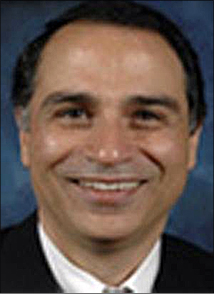June 20-2014

A federal prosecutor is screaming loudly against a decision by a US judge to accept an Iranian-American’s appeal to seal all the documents submitted to the court dealing with his upcoming sentencing.
Masoud Bajestani once directed the construction of a huge nuclear power plant in Tennessee for the Tennessee Valley Authority (TVA), a US government agency that produces electricity for areas of Alabama and Tennessee.
But he was found guilty last year of violating US sanctions on Iran by funneling $600,000 to Iran and by failing to report on his tax returns interest he earned on that money.
On Tuesday, US District Judge Leon Jordan gave him just about the least sentence possible—no prison time and just two years on probation. That was far below federal sentencing guidelines, but the judge said those shouldn’t apply in this case.
It wasn’t clear why the sentence was so mild. In part, that ignorance was because the judge had sealed all the filings dealing with sentencing, an unusal practice.
In a rare move, Assistant US Attorney Jeff Theodore—Bajestani’s prosecutor—is challenging Jordan’s order barring the public release of Theodore’s response to a defense statement on sentencing.
Theodore wrote in a motion objecting to the sealing, “There is no basis for [Bajestani] to be able to seal the entire United States response and prevent it from being made public.”
Bajestani, an Iranian-born nuclear engineer, was head of construction for TVA’s Watts Bar Unit 2 nuclear reactor project before he was fired in 2011 for lying about a financial hardship he claimed in order to get an early withdrawal of $1.5 million from his TVA deferred compensation account.
It later emerged that some of that money had been sent to Iran where it would earn more interest than in the United States.
Bajestani was indicted in February 2013 for using an informal value transfer system known as “hawala” to transfer money through Canada to banks in Iran. He pleaded guilty last August to violating US sanctions on Iran and to two counts of failing to report on his US tax returns interest he earned on that $600,000 investment in Iranian banks.
Bajestani faced sentencing this week, after the Iran Times went to press. In the run-up to that sentencing hearing, Bajestani’s defense attorney, Donald A. Bosch, filed a slew of documents, including his position on sentencing, dozens of letters of support and lists of awards Bajestani received. Bosch asked Jordan to shield them from public view and the judge agreed.
When prosecutor Theodore filed a response to Bosch’s sealed sentencing documents, Bosch asked Jordan to seal that, too. Jordan did not hold a hearing but instead issued a one-paragraph order citing the inclusion of tax information and “notes” in Theodore’s response as cause to cloak the entire document in secrecy.
Theodore wrote in his challenge to the sealing that he specifically told Bosch he wanted his response to be filed publicly, with only a handful of sections blocked from public view.
“There is nothing so sensitive in the United States response to the defendant’s sentencing memorandum that would justify its being sealed in its entirety,” Theodore wrote.
Bosch has not yet filed a response to Theodore’s request to unseal the government’s sentencing document.
Although the public cannot at this point view either the defense or prosecution position on sentencing, other court records show Bajestani is facing a penalty range of 46 to 57 months. Judge Jordan already has rejected some bids by Bosch to lower that penalty range, records show.
For instance, in an order issued by Judge Jordan, he said Bosch had argued in another sealed document that Bajestani did not do business with the government of Iran but private banks there. The judge countered that at least one of the four banks is “owned or controlled by the government of Iran.”
























